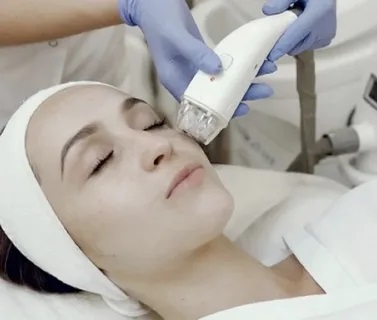Melasma is a common skin condition characterized by dark, irregular patches on the face, often caused by hormonal changes, sun exposure, or genetic factors. For those seeking effective care, Melasma therapy in Islamabad provides professional solutions tailored to individual needs. Identifying the right candidate for treatment is essential to ensure optimal results, safety, and long-term effectiveness.
Understanding Melasma
Melasma occurs when melanocytes, the skin cells responsible for producing pigment, become overactive. This overproduction of melanin results in brown or gray-brown patches, primarily on the cheeks, forehead, upper lip, and nose. Common triggers include:
- Sun exposure: Ultraviolet rays stimulate melanin production, making sun protection crucial.
- Hormonal changes: Pregnancy, contraceptives, and hormone therapy can trigger or worsen melasma.
- Genetics: A family history of melasma increases susceptibility.
- Medications and skincare products: Certain drugs and cosmetics may aggravate pigmentation.
Because melasma has multiple triggers and varying severity, determining candidacy for treatment requires a thorough assessment by a qualified dermatologist.
Who Is an Ideal Candidate?
Not everyone with melasma is immediately suited for professional therapy. Ideal candidates typically exhibit the following characteristics:
1. Individuals with Persistent or Moderate-to-Severe Melasma
Home remedies and over-the-counter products may work for mild cases, but persistent or moderate-to-severe melasma often requires professional intervention. Patients whose pigmentation:
- Has lasted for several months or years.
- Covers a significant portion of the face.
- Shows little improvement with topical creams.
…are considered suitable candidates for professional therapy.
2. People with Realistic Expectations
Successful melasma treatment requires a realistic understanding of results. Professional therapy can significantly reduce pigmentation but may not completely eliminate it. Ideal candidates:
- Understand that multiple sessions may be needed.
- Commit to post-treatment care, including sun protection and topical agents.
- Are willing to combine treatment with lifestyle measures for long-term results.
3. Individuals in Good General Health
Candidates should generally be in good overall health. Certain medical conditions or medications can interfere with treatment effectiveness or increase the risk of side effects. For example:
- Pregnant or breastfeeding women are usually advised to delay laser or chemical peel treatments.
- Patients with active skin infections, eczema, or severe acne may need to address these conditions first.
- Individuals with a history of keloid scarring or hyperpigmentation disorders should be evaluated carefully.
A dermatologist will perform a comprehensive health and skin assessment before recommending therapy.
4. People Committed to Sun Protection
Sun exposure is the primary trigger for melasma. Ideal candidates are those willing to:
- Use broad-spectrum sunscreen daily (SPF 30 or higher).
- Wear hats or protective clothing when outdoors.
- Avoid prolonged sun exposure during peak hours.
Without strict sun protection, even the best professional treatments may not maintain long-term results.
5. Individuals Who Can Commit to Follow-Up
Melasma therapy is not a one-time procedure. Ideal candidates:
- Can attend multiple treatment sessions if necessary.
- Will adhere to follow-up appointments to monitor progress.
- Are ready to integrate prescribed topical agents and lifestyle measures consistently.
This commitment ensures that results are maximized and maintained over time.
Treatment Options for Qualified Candidates
Once a dermatologist identifies a suitable candidate, several treatment options may be recommended, depending on the severity and type of melasma:
Topical Treatments
Prescription creams containing hydroquinone, retinoids, azelaic acid, or kojic acid are commonly used to reduce melanin production. They are often combined with sun protection measures for enhanced results.
Chemical Peels
Chemical peels exfoliate the outer pigmented layer of skin and stimulate regeneration. Popular peels include glycolic acid, salicylic acid, and TCA peels. Proper supervision is essential to prevent irritation or post-inflammatory hyperpigmentation.
Laser and Light-Based Therapies
Laser treatments such as Q-switched Nd:YAG lasers, fractional lasers, and Intense Pulsed Light (IPL) effectively target pigmentation. They are particularly beneficial for stubborn or deep-seated melasma but require professional expertise to minimize risks.
Microneedling
Microneedling creates tiny punctures in the skin to stimulate healing and improve the absorption of topical agents. When combined with other treatments, it can enhance overall results.
Why Proper Candidate Selection Matters
Identifying the right candidate is crucial for several reasons:
- Safety: Reduces the risk of complications such as burns, scarring, or worsening pigmentation.
- Effectiveness: Ensures that the treatment selected is appropriate for the patient’s skin type and melasma severity.
- Long-term results: Increases the likelihood of sustained improvement when combined with proper care and follow-up.
Patients who do not meet these criteria may experience suboptimal results or adverse effects, highlighting the importance of professional assessment.
Supporting Long-Term Results
Candidates for melasma therapy should understand that treatment effectiveness depends on ongoing care. Dermatologists typically recommend:
- Daily application of broad-spectrum sunscreen.
- Gentle skincare routines to avoid irritation.
- Avoidance of harsh chemical products that can trigger pigmentation.
- Healthy lifestyle habits including a balanced diet, hydration, and stress management.
This holistic approach ensures that professional therapy delivers optimal and lasting outcomes.
Choosing the Right Clinic in Islamabad
Selecting a reputable clinic is essential for safe and effective melasma management. When evaluating clinics, consider:
- Certified dermatologists: Ensure the clinic has experienced professionals specializing in melasma.
- Advanced technology: Modern lasers, chemical peels, and microneedling equipment improve treatment safety and results.
- Patient reviews: Feedback from previous clients indicates treatment success and patient satisfaction.
For those seeking expert care, SKN Cosmetics in Islamabad provides comprehensive melasma therapy, combining professional expertise, advanced technology, and personalized treatment plans to meet individual skin needs.
Conclusion
Determining the right candidate for melasma treatment is the first step toward achieving safe and effective results. Ideal candidates for Melasma therapy in Islamabad typically have persistent or moderate-to-severe pigmentation, realistic expectations, good general health, commitment to sun protection, and willingness to follow through with multiple sessions and aftercare. Trusted clinics like SKN Cosmetics offer professional assessment and customized treatment plans, ensuring optimal results and long-lasting improvement in skin tone and texture.
 WhatsApp Us Now
WhatsApp Us Now






